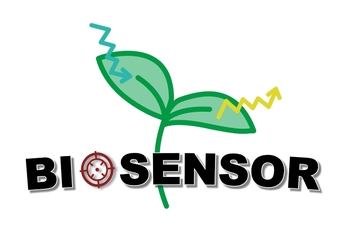CIPK15-mediated inhibition of NH4+ transport protects Arabidopsis from submergence
Ammonium (NH4+) serves as a vital nitrogen source for plants, but it can turn toxic when it accumulates in excessive amounts. Toxicity is aggravated under hypoxic/anaerobic conditions, e.g., during flooding or submergence, due to a lower assimilation capacity. AMT1; 1 mediates NH4+ uptake into roots. Under conditions of oxygen-deficiency, i.e., submergence, the CBL-interacting protein kinase OsCIPK15 has been shown to trigger SnRK1A signaling, promoting starch mobilization, thereby the increasing availability of ATP, reduction equivalents and acceptors for NH4+ assimilation in rice. Our previous study in Arabidopsis demonstrates that AtCIPK15 phosphorylates AMT1; 1 whose activity is under allosteric feedback control by phosphorylation of T460 in the cytosolic C-terminus. Here we show that submergence cause higher NH4+ accumulation in wild-type, plant but not of nitrate, nor in a quadruple amt knock-out mutant. In addition, submergence triggers rapid accumulation of AtAMT1;1 and AtCIPK15 transcripts as well as AMT1 phosphorylation. Significantly, cipk15 knock-out mutants do not exhibit an increase in AMT1 phosphorylation; however, they do display heightened sensitivity to submergence. These findings suggest that CIPK15 suppresses AMT activity, resulting in decreased NH4+ accumulation during submergence, a period when NH4+ assimilation capacity may be impaired.
Cheng-Hsun Ho
Associate Research Fellow
(02)2787-2123
zcybele3@sinica.edu.tw
A541, Agricultural Technology Building
Lab.
A520, Agricultural Technology Building
Tel: (02)2787-2124
2024-present
Associate Research Fellow, Agricultural Biotechnology Research Center (ABRC), Academia Sinica
2015-2024
Assistant Research Fellow, Agricultural Biotechnology Research Center (ABRC), Academia Sinica
2011-2015
Senior Research Associate, Department of Plant Biology, Carnegie Institution for Science, Stanford
2009-2011
Academia Sinica Postdoctoral Fellow, Institution of Molecular Biology (IMB), Academia Sinica
2004-2009
Ph.D. Taiwan International Graduate Program, Institute of Molecular Biology, Academia Sinica/Graduate Institute of Life Sciences, National Defense Medical Center
2002-2004
M.S. Institution of Plant Biology, National Taiwan University

